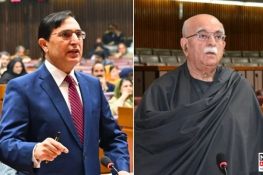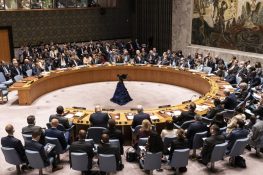Criminal Cases Filed in Lahore
Pakistan’s National Cyber Crime Investigation Agency (NCCIA) has registered three separate cases against well-known social media influencers Iqra Kanwal, Nadeem Mubarak, and Hasnain Shah. The charges stem from their alleged involvement in promoting illegal online trading applications.
The influencers, popular on TikTok and other platforms, are accused of encouraging thousands of followers to invest in apps that promised high returns but operated outside legal financial frameworks.
Allegations of Misleading Promotion
According to NCCIA officials, the influencers were repeatedly summoned for questioning but failed to appear. Investigators allege that the three promoted unregulated applications by offering “false promises of profit” to lure people into making financial investments.
Officials say the promotions created a misleading sense of legitimacy around schemes that were in fact unauthorized and potentially fraudulent. Such cases often target lower-income groups and young people looking for quick returns.
Crackdown and Arrest Efforts
Sources within the agency confirmed that special teams have been formed to secure the immediate arrest of the accused. NCCIA has also intensified monitoring of their social media accounts to prevent further promotion of financial scams.
The agency emphasized that this crackdown is part of a broader campaign against cyber fraud, which has seen rising complaints in Pakistan. By closely tracking online influencers, officials hope to protect citizens from being exploited through digital platforms.
Growing Concerns About Online Financial Fraud
The case comes at a time when cybercrime is becoming a serious challenge in Pakistan. According to Pakistan’s Federal Investigation Agency (FIA), financial scams account for a large portion of cybercrime complaints filed each year. Many involve fraudulent investment apps or unauthorized trading platforms that vanish after collecting deposits from unsuspecting users.
Globally, the rise of “influencers”—social media personalities who promote financial products—has created regulatory dilemmas. In India, the Securities and Exchange Board recently issued guidelines restricting influencers from advertising unregistered investment platforms. Similarly, authorities in the United Kingdom and United States have fined influencers for promoting cryptocurrency schemes without proper disclosures.
Officials Warn of Zero Tolerance
NCCIA officials made clear that no leniency would be shown to those misusing social media for fraud. “Anyone promoting unauthorized trading apps or misleading citizens will face strict legal action,” one official stated.
The agency also urged the public to verify the legitimacy of online investment opportunities through official financial regulators before committing funds.
Impact on Influencer Culture
The involvement of popular TikTok stars has fueled debate about the responsibilities of social media influencers in Pakistan. With millions of followers, they hold significant sway, especially among young audiences. Critics argue that promoting financial products without transparency or oversight puts vulnerable groups at risk.
While Iqra Kanwal, Nadeem Mubarak, and Hasnain Shah have yet to issue public statements, their cases highlight how online fame can intersect with regulatory and legal challenges. Observers note that this development may push authorities to tighten rules around influencer marketing in Pakistan’s fast-growing digital economy.
What Lies Ahead
The three influencers remain under investigation, and their arrests could follow soon if they fail to cooperate with the authorities. The outcome of these cases is likely to set an important precedent for regulating social media promotions in Pakistan.
For now, officials stress that the crackdown will continue, with a focus on ensuring that online platforms do not become tools for financial exploitation.















